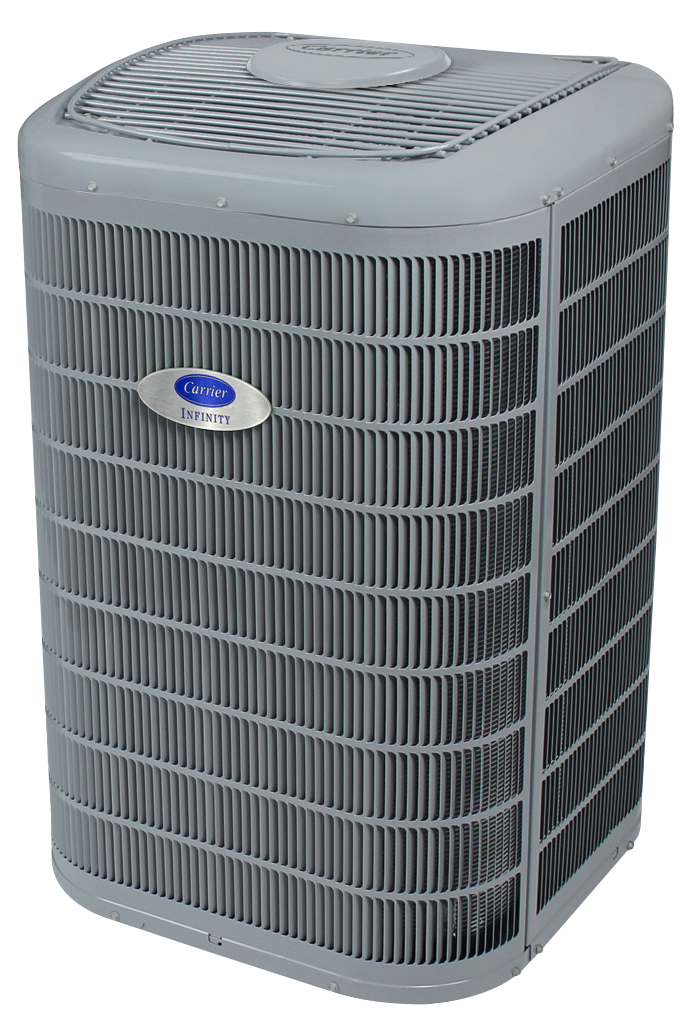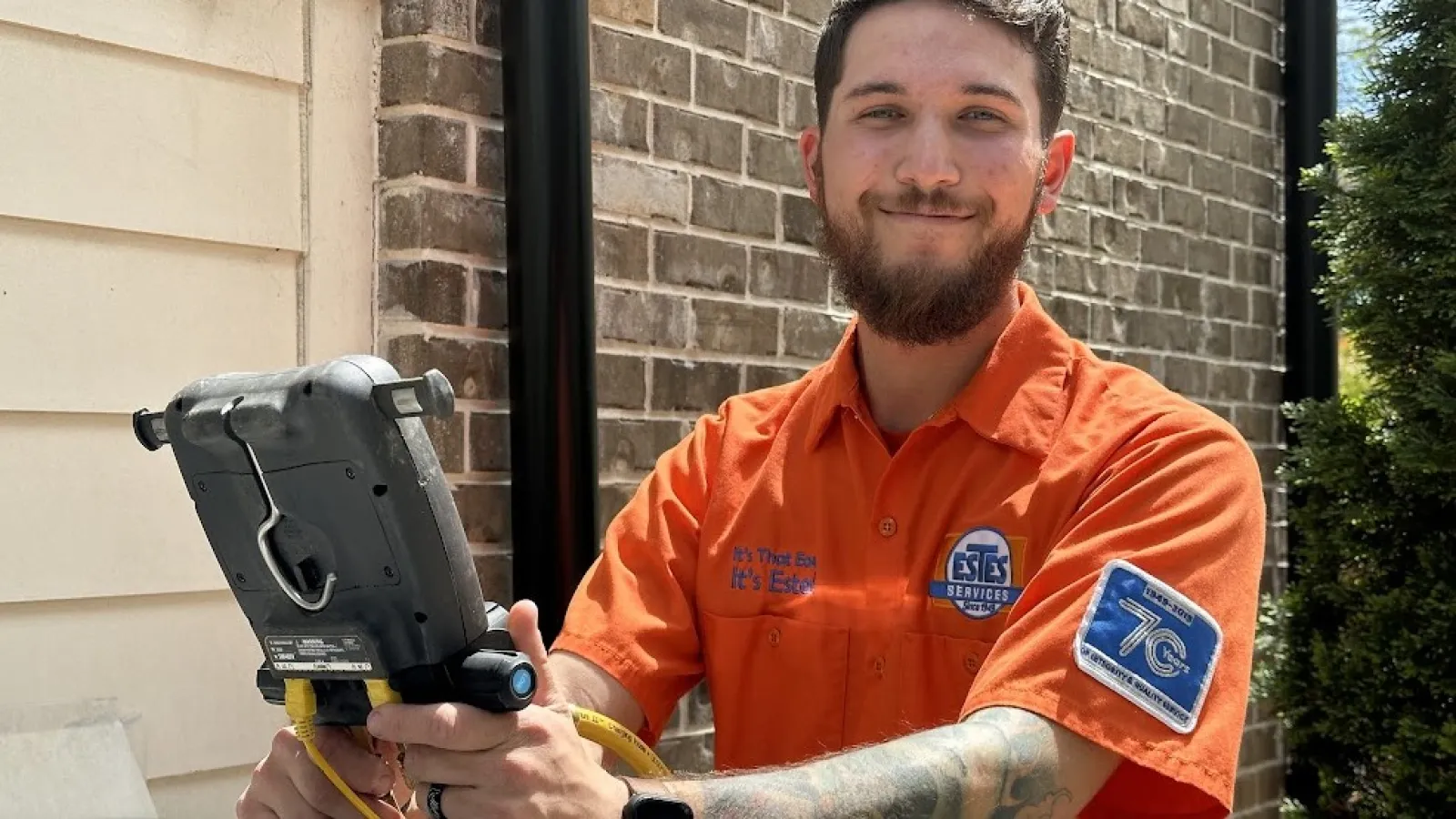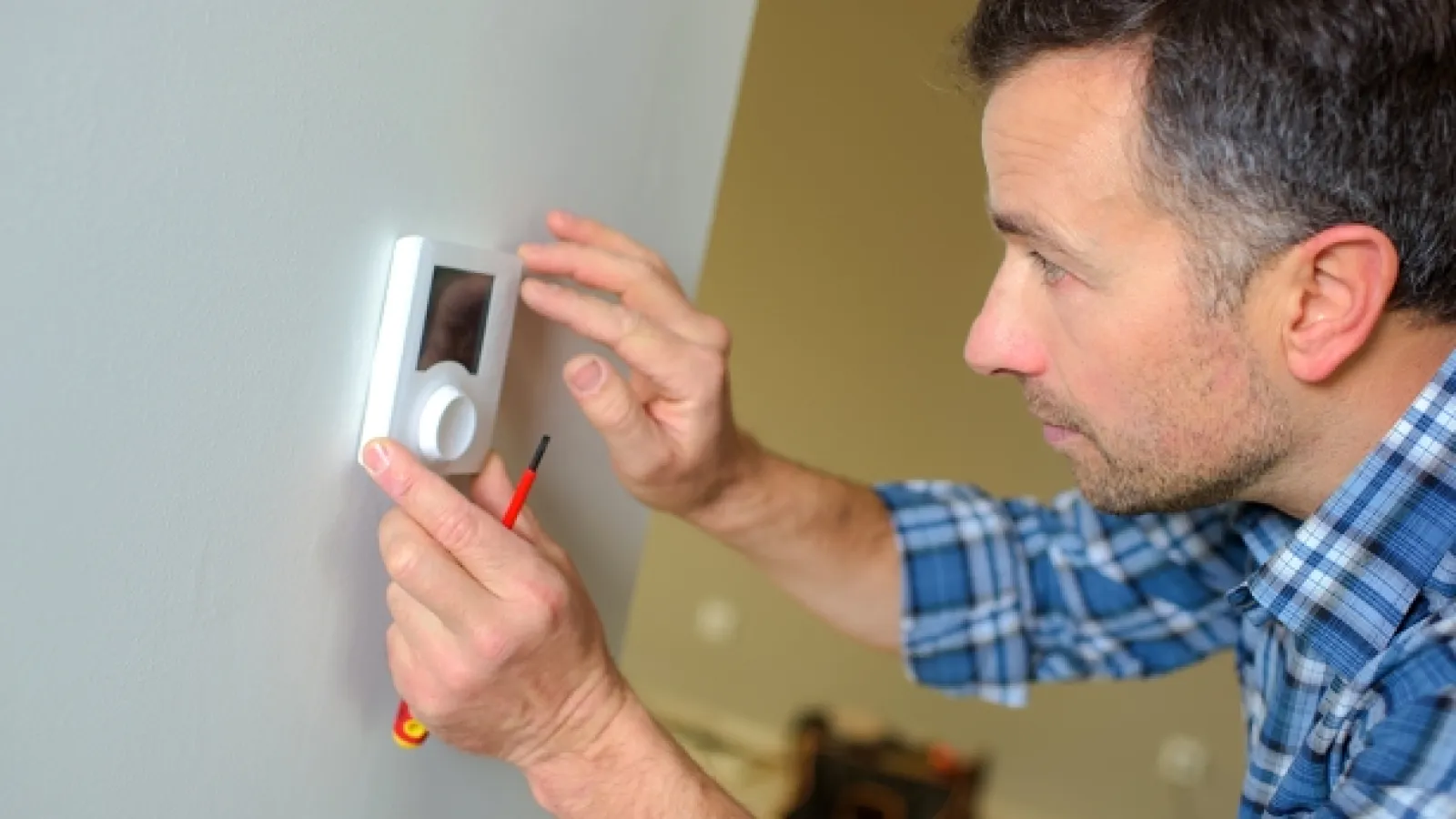When you purchase a new HVAC system, it's more than just a product—it's an investment in your home and in your future. In fact, a new system can improve your comfort, energy-efficiency, and indoor air quality. As a result, it requires careful consideration and planning. New federal tax credits for HVAC may help your decision-making when it comes to possibly upgrading your system.
That's why, in this short guide we created for homeowners in the Atlanta, Georgia area, we will briefly cover these new tax credits, so you can discover how it provides an excellent incentive to upgrade to a more efficient Carrier air-conditioning system this season. Plus, with the help of our Atlanta HVAC pros at Estes Services, we make it easy for you to help better understand the 25C tax credit and how it may apply*! It's that Easy; It's Estes! Read on to learn more.
Table of Contents:
What are the federal tax credits for energy efficiency?
Qualifying Energy-Efficient Home Improvements
Qualifying HVAC Improvements
Heat Pumps Tax Credit
Central Air Conditioners Tax Credit
Conclusion
What are the Federal Tax Credits for Energy Efficiency?
The Inflation Reduction Act of 2022 provides incentives for homeowners to enhance the energy efficiency of their homes through federal tax credits and deductions. In essence, the Inflation Reduction Act expands and extends the 25C tax credit, known as the Energy Efficient Home Improvement Credit, by increasing the maximum allowable credit for specific energy-efficient home improvements.
Previously, this tax credit was limited to covering up to 10% of your project costs, but it now has been increased to cover up to 30% and available on an annual basis. As of January, 1, 2023, if you make qualifying energy-efficient improvements, you may qualify for tax credits worth up to $3,200.
Qualifying Energy-Efficient Home Improvements
Under the Inflation Reduction Act's expanded Energy Efficient Home Improvement Credit, homeowners can undertake a variety of energy-efficient upgrades to their properties to qualify for the increased tax credit.
Eligible improvements include, but are not limited to, to the following:
Eligible HVAC systems
Eligible water heaters
Enhancing insulation
Upgrading windows and doors
Upgrading lighting fixtures and appliances
Atlanta homeowners need to ensure that the improvements they undertake meet the specific criteria outlined in the Inflation Reduction Act, which stipulates that the improvements must be made on an existing home that is located within the United States.
If you have any questions or need additional information, it's important to consult with a qualified contractor like Estes Services to identify the most suitable upgrades for your home and ensure you meet eligibility requirements.
Qualifying HVAC Improvements
Among the qualifying upgrades, improvements to HVAC systems stand out as a key contributor to energy savings and home comfort.
Here are the specifics for the tax credits involving HVAC improvements in the southern United States**:
Heat Pumps Tax Credit

Heat Pumps — For heat pumps, homeowners are eligible to claim 30% of the project cost, up to $2,000 in tax credits. Qualifying upgrade costs encompass equipment, installation, and labor expenses.
Ducted Heat Pumps: According to the Department of Energy, in the South, the heat pump must have the ENERGY STAR label.
Ductless Heat Pumps (Mini-Splits): In the South, ENERGY STAR certified heat pumps that have
SEER2 > 16
EER2 > 12
HSPF2 > 9
Central Air Conditioners Tax Credit

Central Air Conditioners — For central air conditioners, homeowners can claim 30% of the project cost, up to $600 in tax credits.
Split Systems: ENERGY STAR-certified equipment with SEER2 > 16
Packaged Systems: All ENERGY STAR packaged systems are eligible
Keep in mind that there are annual limits on the energy-efficient home improvement tax credits, according to ENERGYSTAR.gov. It is explained that the overall limit for this tax credit is $3,200.
So, you have a total limit of $1,200 for any combination of home envelope improvements, as well as furnaces, boilers, and air conditioners. Then, with heat pumps, heat pump water heaters, and biomass stoves/boilers, you are subject to an annual total limit of $2,000.
Schedule an HVAC Consultation with Estes Services and Learn More About How to Take
That completes our short guide for Georgia homeowners on the federal tax credits for HVAC in 2024. As you can see, investing in and upgrading your HVAC system can help improve your comfort and enable tax credits that can save you money.
By working with Estes Services who understands the ins and outs of these tax incentives, you can navigate the process with ease and ensure that you're making the most of available opportunities in terms of federal, state, and local incentives.
If you are interested in learning more about upgrading your HVAC system and taking advantage of these federal incentives, schedule a free consultation with Estes Services today. It's that Easy—it's Estes!
Important note: This post is for informational and educational purposes only. This post should not be taken as legal advice or used as a substitute for such.
*Remember, this article is for general information purposes only. Please consult a qualified professional for actual legal advice.)
**For efficiency requirements in the northern U.S., https://www.energystar.gov/about/federal-tax-credits.



